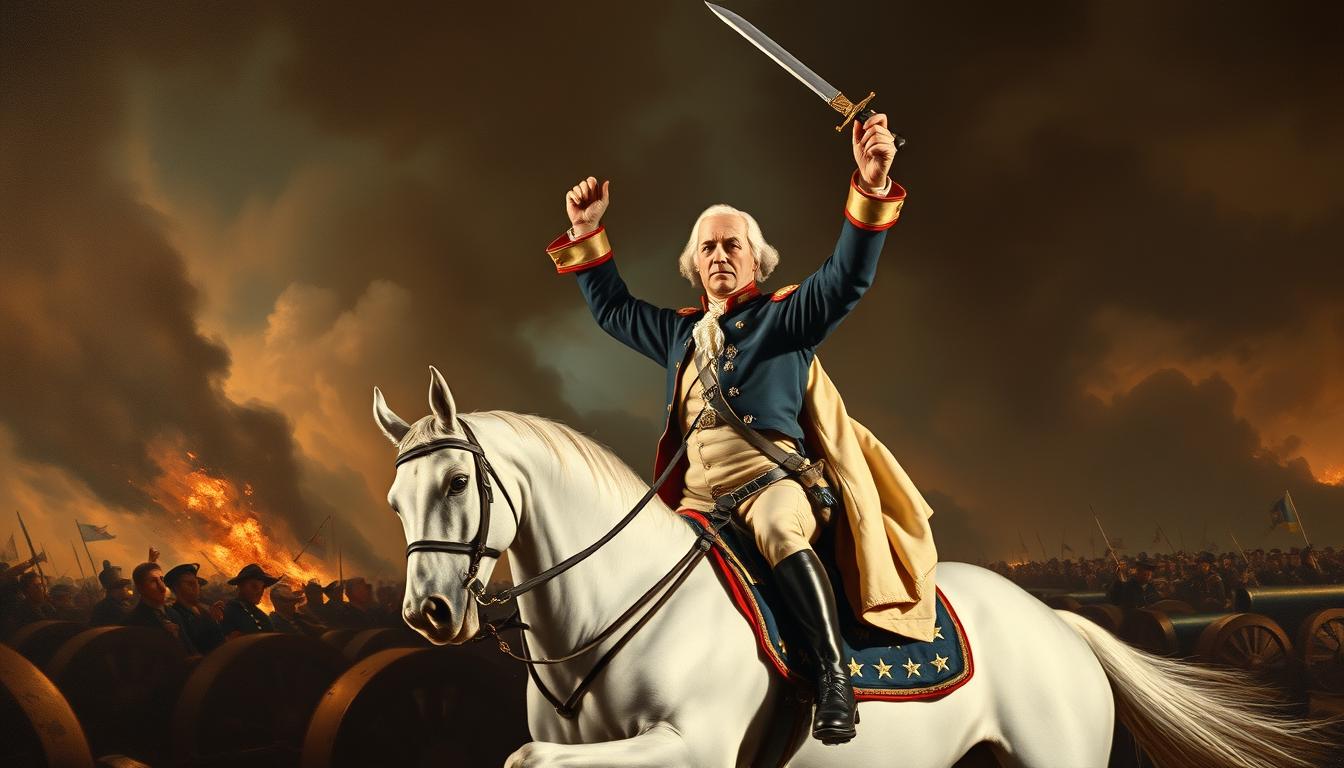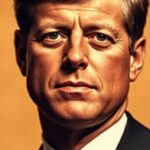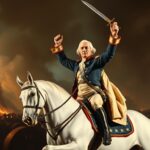Imagine a tall, brave man facing hard times. He wants to help a nation be free. This is George Washington, a key figure in American history.
He was the first president of the United States. He led the country through tough times. His first win in 1789 started a new chapter in American history.

Let’s learn about this amazing leader. You’ll see how he shaped America and its values. Join us as we explore Washington’s life and how he left a lasting mark.
Key Takeaways
- George Washington played a critical role as a founding father during America’s formation.
- His election as the first president of the United States set important precedents for future leaders.
- Washington’s presidential leadership established the framework for American governance.
- His actions during the American Revolution were pivotal in securing independence.
- George Washington’s legacy influences the political landscape of the United States today.
The Early Life of George Washington
George Washington’s early years show how his Virginia roots shaped him. He was born in Virginia, where plantations and slavery were common. This mix of life and values helped shape his dreams.
Virginia Roots and Heritage
Washington’s family had strong ties to Virginia. He grew up on a big plantation. This life taught him about leadership and the importance of land and honor.
The Influence of Plantations and Slavery
Plantations were a big part of Washington’s life. They used slave labor, which was common in Virginia. This made Washington face the hard truth of slavery. It also made him think deeply about freedom.
Education and Early Aspirations
Washington started learning early, mostly by doing things. He wanted to be a surveyor. This job helped him become a great military leader. His hard work and dreams set him on a path to change America.

| Aspect | Description |
|---|---|
| Roots | George Washington was born into a prominent Virginia family. |
| Plantations | His upbringing in a plantation culture shaped his views on wealth and community. |
| Slavery | Enslaved individuals contributed significantly to the plantation economy in Virginia. |
| Education | Washington’s education was hands-on, combining practical learning with early ambitions. |
| Aspirations | Aspired to be a surveyor, showcasing early leadership signs. |
George Washington’s Role in the American Revolution
George Washington led the Continental Army through tough times in the American Revolution. He united the colonies against the British. He also became known as a great military leader.
Leadership of the Continental Army
Washington was the commander of the Continental Army from the start. He knew how to work with different troops. He taught them discipline and training.
This made them a strong force. They could follow Washington’s plans well.
Key Battles and Strategic Decisions
Washington won many important battles. The Siege of Boston was one of his first big wins. It showed he could control the fight.
The attack at Trenton boosted the army’s spirit. It led to more victories. Washington’s best move was at Yorktown, where he trapped British General Cornwallis.
This victory was key to gaining freedom.
The Path to Independence
Washington faced many challenges during the revolution. He had to deal with food shortages and deserters. But he never gave up.
He worked hard to keep the colonies together. His leadership earned him the title “Father of His Country.” His efforts helped create a new nation.

Conclusion
George Washington’s legacy is huge. He helped shape the United States. His leadership in the American Revolution led to freedom.
He also helped set the country’s values and government. As the first president, he showed what the president should do. His work still guides our leaders today.
Knowing about Washington’s life is key for the future. He believed in helping others and serving the public. His love for freedom is still important today.
His ideas about working together and never giving up inspire many. These ideas are not just for Americans but for people everywhere.
Thinking about Washington’s legacy shows us the power of leadership. His story teaches us about the value of helping others. By learning from him, we keep democracy alive and shape our country’s future.
FAQ
Who was George Washington?
George Washington was a key figure in American history. He was the first president and a founding father. He led the Continental Army in the American Revolution and helped create the nation’s government.
What were George Washington’s contributions during the American Revolution?
Washington led the Continental Army in many battles. He won the Siege of Boston, the Battle of Trenton, and Yorktown. His leadership helped the colonies win freedom from Britain.
Why is George Washington known as the ‘Father of His Country’?
Washington is called the “Father of His Country” for his role in founding the U.S. He led the Revolutionary War and was the first president. His actions set a good example for future leaders.
What was Washington’s role as the first president of the United States?
As the first president, Washington set important precedents. He created a cabinet and a two-term limit. His leadership helped make the new nation stable and set up the government we have today.
How did George Washington’s early life influence his later decisions?
Washington grew up on a Virginia plantation. This upbringing shaped his values and leadership. His family’s wealth and education also influenced his goals and how he led.
Where can I learn more about George Washington’s life and legacy?
To learn more about Washington, read “The Life of George Washington” by John Marshall. Also, check out “Washington: A Life” by Ron Chernow and “George Washington and the American Revolution” by James Thomas Flexner.
What can we learn from Washington’s leadership style?
Washington’s leadership shows the value of unity, resilience, and adaptability. He inspired people to work together. His approach teaches us about the power of teamwork and strategic thinking.
What is Mount Vernon, and why is it significant?
Mount Vernon is Washington’s plantation in Virginia. It shows his life outside politics. Today, it honors his contributions to the U.S. as a historical site.





